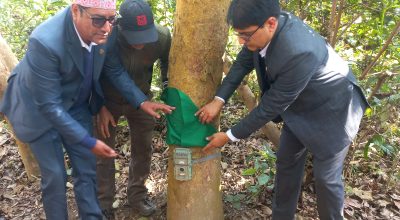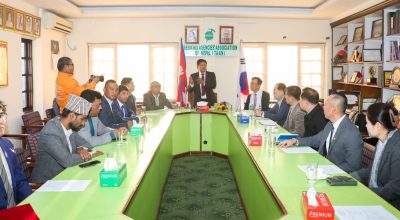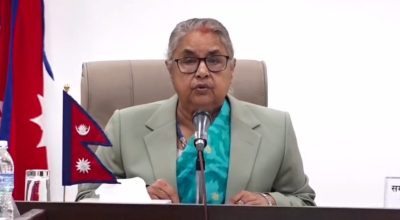
Kathmandu, Jan 30: A US 2022 Trafficking In Person Report has stated that the Government of Nepal does not fully meet the minimum standards for the elimination of trafficking but is making significant efforts to do so.
The report further says, “The government demonstrated overall increasing efforts compared with the previous reporting period, considering the impact of the COVID-19 pandemic on its anti-trafficking capacity. These efforts included increasing investigations and identifying more trafficking victims. The government also approved a new regulation to increase protections for victims of crime, including human trafficking survivors. However, the government did not meet the minimum standards in several key areas. The government’s laws do not criminalize all forms of labor trafficking and sex trafficking, and the government did not finalize its long-pending draft amendments. Officials’ identification of, and protection for, male trafficking victims and transnational labor trafficking victims remained inadequate compared to the size of the problem. The government initiated fewer prosecutions and convicted fewer traffickers, and official complicity in trafficking crimes remained a problem, both direct complicity and negligence. The government continued to allow Nepali migrant workers to pay recruitment fees and related expenses with few measures to protect migrants from exploitation.”
Likewise, the report suggested several recommendations.
* Amend the Human Trafficking and Transportation (Control) Act (HTTCA) to criminalize all forms of sex trafficking and labor trafficking, in line with the 2000 UN TIP Protocol.
* Increase investigations, prosecutions, and convictions of all trafficking offenses, including allegedly complicit officials, labor recruiters, and sub-agents for labor trafficking.
* Finalize standard operating procedures (SOPs) for victim identification and referral, train front-line responders on SOPs, and increase referrals of trafficking victims to services.
* Establish SOPs for law enforcement to investigate human trafficking cases, including referrals between agencies.
* Expand availability and capacity of victim care, including shelter and repatriation, for all victims, especially men and boys and workers exploited overseas.
* Increase staff, training, and resources to the Department of Foreign Employment (DoFE) to facilitate full implementation and monitoring of the low-cost recruitment policy.
* Take steps to eliminate recruitment or placement fees charged to workers by Nepali labor recruiters and ensure any recruitment fees are paid by employers.
* Implement the victim-witness protection provisions of the HTTCA.
* Significantly increase monitoring of children’s homes and orphanages and hold accountable those that do not meet the government’s minimum standards of care.
* Authorize labor inspectors to monitor the adult entertainment sector (AES) establishments for labor violations.
* Remove the HTTCA provision that allows the judiciary to fine victims if they fail to appear in court and hold them criminally liable for providing contradictory testimony.
* Lift current conditions and restrictions on female migration and engage destination country governments to create rights-based, enforceable agreements that protect Nepali workers from human trafficking.
* Finalize and implement a revised National Action Plan (NAP).
* Provide documentation to stateless individuals, internationally-recognized refugees, and asylum-seekers to allow them to work, attend school, and access social services.













